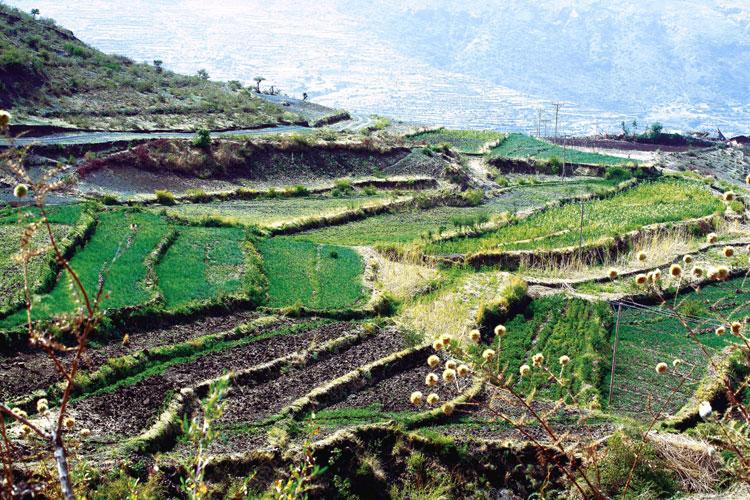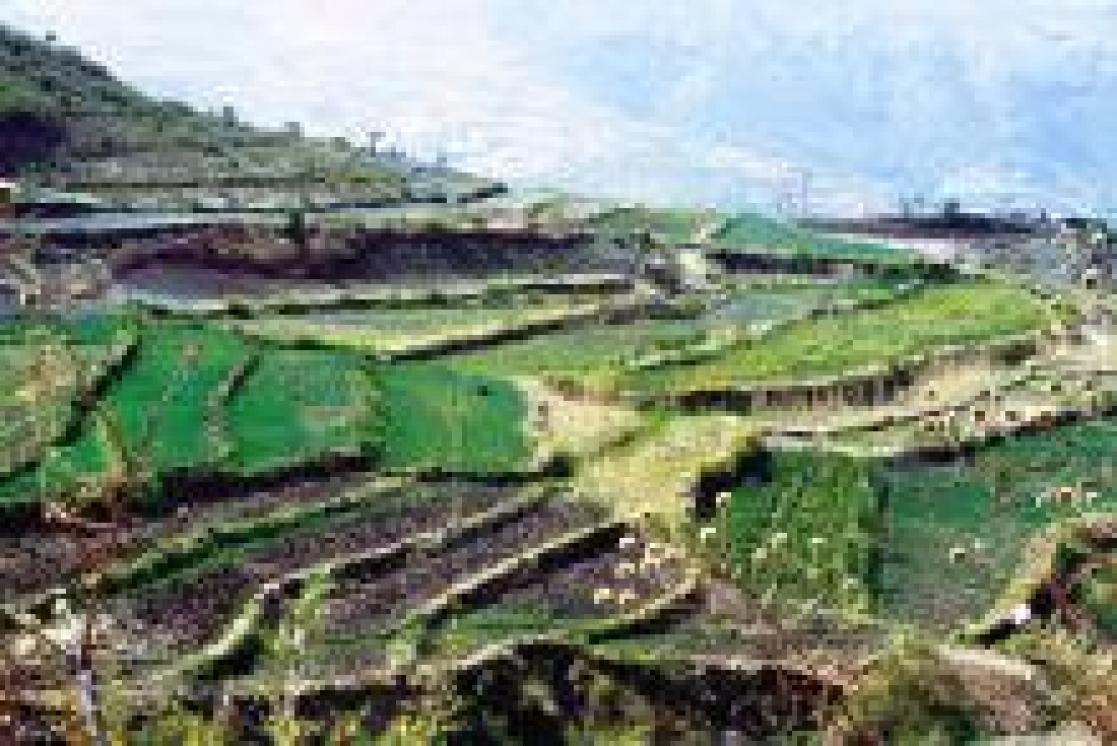Multi Donor Trust Fund for Ethiopia - Productive Safety Net Programme

Ethiopia’s Productive Safety Net Programme (PSNP) was launched in 2005, aiming at reducing food insecurity vulnerability by providing economic opportunities and building resilience to crises, through cash transfers, public works, and nutritional feeding programmes. PSNP provides payments to able-bodied members of the community for participation in labour-intensive public works. It provides direct payment support (for 6 months of the year) to labour-poor, elderly or otherwise incapacitated households. This support assists households to smooth their consumption, avoid asset depletion, and plan with greater certainty. Public works focus on integrated community-based watershed development, covering activities such as soil and water conservation measures, rangeland management (in pastoral areas), and the development of community assets such as roads, water infrastructure, schools, and health care centres. The fourth phase of PSNP started in mid-2015 with the aim to increase resilience to shocks and to improve food and nutrition security while improving environmental management. The case of Ethiopia’s PSNP demonstrates the importance of integrating environment and climate change mitigation and adaptation when formulating and implementing social protection programmes. By incorporating environmental and climate change considerations, Ethiopia’s PSNP has increased resilience, improved food security and reduced deforestation through land restoration and natural resources management, and is now known as one of the largest climate change adaptation programmes in Africa.
STORY : Ethiopia’s safety net programme enhances climate change resilience of vulnerable populations
"PSNP provides transfers to the chronically food-insecure households in a way that prevents asset depletion at the household level, by making people participate in public works, rehabilitate the environment and create assets at community level. This is the unique feature of the Safety Net Programme."

Ato Berhanu Woldemichael, Director of Food Security Coordination Directorate
CONTEXT
In 2005, the Government of Ethiopia launched the Productive Safety Net Programme (PSNP) to provide solutions to food insecurity, by addressing its causes -such as environmental degradation- and by interventions in education, health and water. To counteract the increasing ravages of climate change, in 2009 the programme boosted the integration of environmental and climate change considerations, prioritising climate resilience. Today, the PSNP is the largest climate change adaptation programme in Africa, which contributes to climate change mitigation, land restoration & reforestation.
OBJECTIVES
- Increase resilience to shocks and improve food security through sustainable natural resources management, public works, cash transfers, and nutritional feeding.
- Provide cash- and food transfers to able-bodied members of communities willing to participate in labour-intensive public works for integrated watershed development, including activities such as soil and water conservation, rangeland management and the development of community assets such as roads, water infrastructure, schools, and health care centres.
- Contribute to climate change adaptation and mitigation, and combat desertification by restoring land and counteracting deforestation.
RESULTS
- PSNP public works improved the people's capacity to grow food – and hence community resilience - by increasing land productivity three to four times. Higher crop production has been achieved by reducing soil erosion and sediment losses by 50%. Improved food security has helped prevent the sale of assets, in periods of acute need and it also contributes to keeping children at school. Food gap (times when households cannot meet their food needs) dropped from 3.6 to 2.3 months.
- The watershed integrated and multi sectorial approach results in reduced soil erosion and surface run-off and in increased infiltration and soil moisture, which enhances the fertility and carrying capacity of the watersheds. Watersheds, protected from human and livestock interference, show remarkable natural regeneration of flora & biodiversity. Closure of areas and enrichment plantations in degraded farmlands/grazing lands have resulted in the regeneration of the watershed & woodlands.
- Programme interventions make a significant contribution to the mitigation of climate-change by sequestering carbon dioxide in soils and biomass and reducing emissions of greenhouse gases from the agricultural, forestry and other land use sectors. According to the 2015 Public Works Impact Assessment, the total CO2 sequestered during phase 3 of the programme, in ten of the watersheds sampled, amounted to over 1 million CO2 (tonnes CO2) or an annual average of 200,688 tCO2e.
TESTIMONY
PSNP public works enhance resilience to climate change

"We are happy with the PSNP work because the output is for our own good too. We can see that our work on check dams, hillside terracing, soil [bunds], and planting trees will benefit our posterity. (…)
Where we have done public works, we have seen tree growth, germination of animal forage and re-emergence of springs. We have made hillside terraces on communal land where before the hillsides were abused with no control. Since we have invested in them, we protect them keenly, like it was our own possession" [1].
Mr. Abdella Ali, Hawi Bilisuma Kebele, Oromia
[1] Coping with Change: How Ethiopia’s PSNP & HABP are building resilience to climate change
(2013) - World Bank
http://www.ltsi.co.uk/news/coping-for-change
LEARN MORE
FACTS AND FIGURES
- Household’s food gap dropped from 3.6 months to 2.3 months. 50% reduction of soil erosion and sediment losses.
- Woody biomass production from area closures was doubled from 5,194 MT/ha in 2005, to 10,682 MT/ha in 2015
- Total CO2 sequestered during phase 3 in 10 watersheds sampled, amounted to over 1 million CO2 (tonnes CO₂), an annual average of 200,688 t CO₂e
- 40 000 kilometres of rural access roads (dry weather roads) constructed and/or maintained
- 600 000 km of soil and water conservation physical structures (degraded land rehabilitation)
- 200 000 ponds and 35 000 hand-dug wells for rainwater harvesting
- 2 800 kilometres of canals for small-scale irrigation as well as access to water for households
- 4 000 classrooms built and/or rehabilitated using local materials; and
- 600 new health posts constructed
Total Cost (EUR): 11 000 000
EU contracted amount (EUR): 11 000 000
Duration: July 2015 - November 2018
Implementing organisation: INTERNATIONAL BANK FOR RECONSTRUCTION AND DEVELOPMENT
Funding Instrument: European Development Fund (EDF)
Benefitting zone: Ethiopia
PARTNERS
